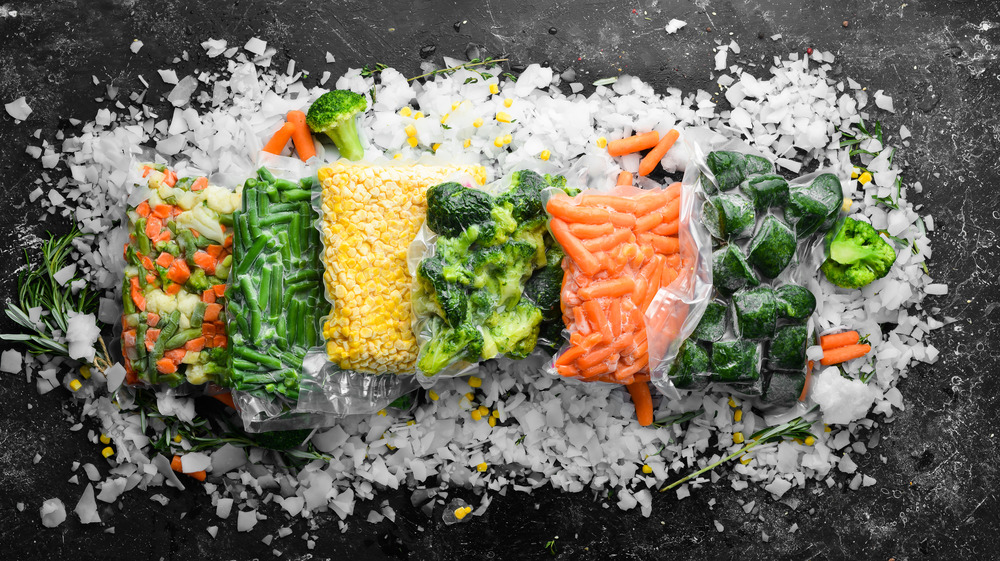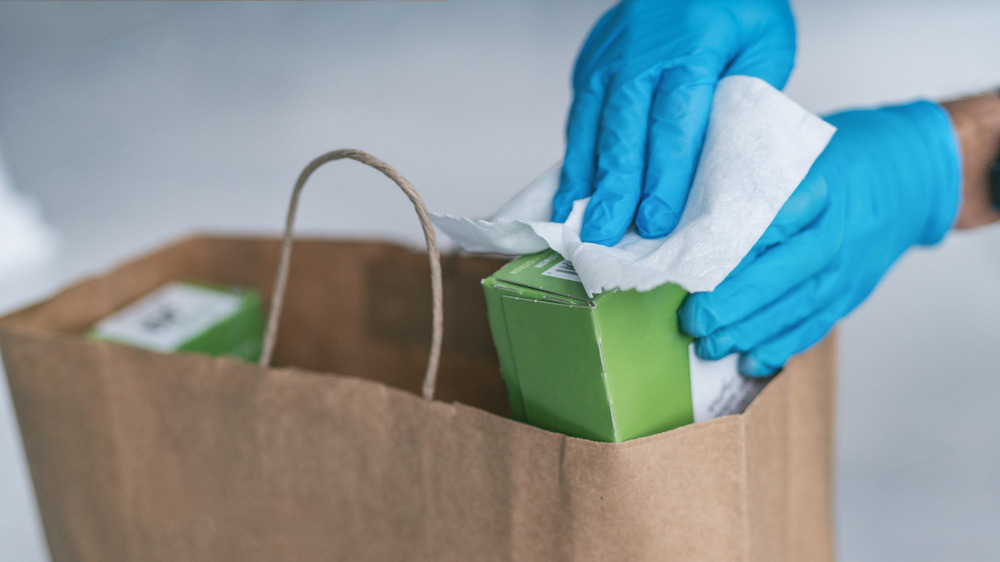Can You Get COVID-19 From Frozen Food?
Early on in the pandemic, many people were diligently disinfecting food packages after bringing them home from the local grocery store, worried about getting this new coronavirus. Experts didn't know much about how COVID-19 spread when the outbreak first began — but they know more now.
According to the World Health Organization (WHO), it is possible for COVID-19 to be transmitted on frozen food packages (via NPR). However, the WHO website reports that you should wash your hands after handling food packages and before you eat, but you don't need to disinfect food packages. So, which one is it?
NPR interviewed Peter Ben Embarek, a food scientist who went to Wuhan, China, with a team of scientists from the WHO to investigate where COVID-19 originated. Embarek said that the virus can survive cold environments but isn't sure if people can catch COVID-19 from frozen food or packages.
In China, scientists discovered an outbreak at Xinfadi Market in Beijing from frozen packages of codfish, among a few other similar outbreaks. The live virus was on the outside and inside of the packages, according to a 2020 abstract.
Should you be disinfecting food packages?
While it's possible COVID-19 can be spread from surfaces, it's actually pretty rare. You would have to touch a surface with the live virus on it and then touch your eyes, nose, or mouth. COVID-19 spreads faster and easier through respiratory droplets in the air, which is why wearing masks, social distancing, and avoiding poorly ventilated or crowded areas are so important (via CDC).
The Xinfadi Market in Bejing isn't like grocery stores in the United States. These markets are enormous — NPR reported that the Xinfadi Market is 12 million square feet, and the food comes in large frozen slabs, nothing like anything you'd see in the freezer section in the U.S. The surfaces and environments are entirely different.
The bottom line? There's no suspicion or evidence of consumers getting COVID-19 from the surfaces of their frozen food packages. The CDC says it's low risk because COVID-19 doesn't survive well or very long on surfaces because it can't reproduce; it can only do that in people. Wash your hands for at least 20 seconds with soap and water before eating or preparing food.


